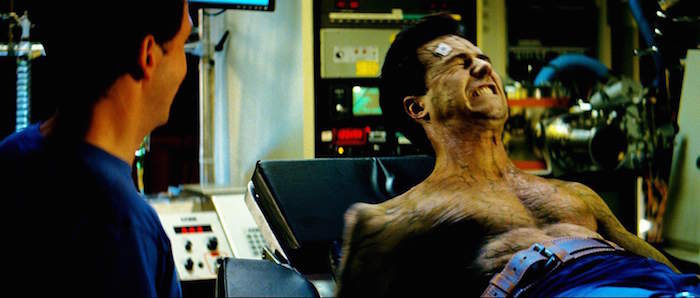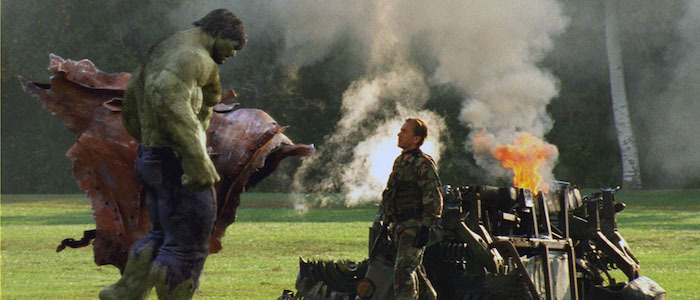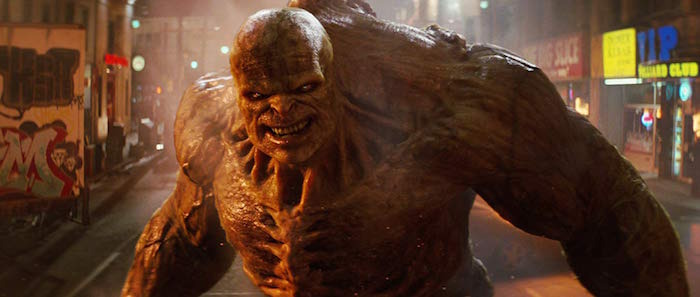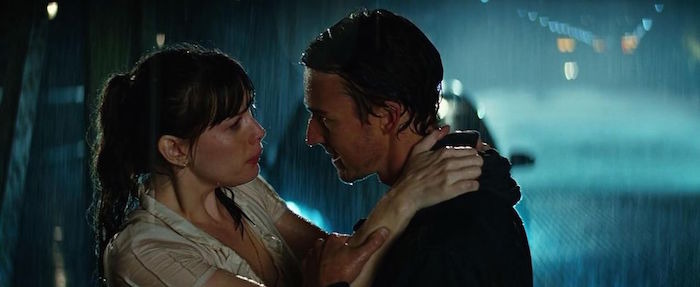Road To Endgame: 'The Incredible Hulk' Is Marvel's Forgotten, And Often Fascinating, Monster Movie
(Welcome to Road to Endgame, where we revisit all 22 movies of the Marvel Cinematic Universe and ask, "How did we get here?" In this edition: The Incredible Hulk, Marvel's forgotten monster movie, forms a vital puzzle piece of the MCU.)While it features crossover references a-plenty, The Incredible Hulk stands out from the Marvel pack thanks to its distinct approach. It's less "superhero movie" and more "classic monster picture," weaving these tones together with surprising ease, while employing the kind of skillful, kinetic camerawork the rest of the MCU seldom matched. Though, in trying to marry its dueling narratives, the film begins to stumble.Just six weeks after Iron Man cleaned house at the box office, The Incredible Hulk was met with less enthusiastic fanfare. A mere five years out from Ang Lee's Hulk (a film The Incredible Hulk may as well have been a soft sequel to), Louis Leterrier's monster movie may not have given audiences something new, however it used familiar language to fit itself into the growing Marvel puzzle.
A Dark Mirror to Iron Man
The Incredible Hulk opens with a flashback in the form of lurid montage, as Craig Armstrong's unsettling score sets the stage for Bruce Banner's (Edward Norton) first transformation. The credits play over rows of dimly lit "mad scientist" X-rays (and the military's Stark Industries blueprints) before shifting to the Hulk's perspective, as he tears through foes and loved ones.Bruce Banner is both Victor Frankenstein and Frankenstein's monster, and the angry townspeople in pursuit of him are the U.S. government. They refer to the Hulk as "the bogey," the same descriptor they used for Tony Stark when he intervened in the Middle East. The Incredible Hulk however, is far more willing to make villains out of the American military than its Pentagon-funded predecessor, Jon Favreau's Iron Man.The U.S. military aims to seize the Hulk's power, re-create it and weaponize it, as they would also attempt to with Stark's suits in Iron Man 2. Only rather than seizing technology, they treat Bruce Banner himself as government property. Although, much like Stark himself, the military intervenes in a foreign country to get a weapon out of "the wrong hands," in a more precise articulation of post-9/11 military politics than Iron Man.A mere six weeks out from its first entry, Marvel flipped its own script. Shadowy government villains now occupied the same narrative space as the series' flagship hero. This provided the MCU with an opportunity to pit two characters with wildly different relationships to military power — Iron Man and the Hulk — against one another. The film's closing scene even hints at this conflict when Stark shows up. Where Stark can simply take off his suit, Banner can't get rid of Hulk no matter how hard he tries. Where Marvel's first film is about Tony Stark becoming the Iron Man, its second is about Bruce Banner trying to un-become the Hulk. The series positions them as sides to a coin before they ever meet, though in what feels like a major missed opportunity, this dichotomy is never paid off in future installments.While The Incredible Hulk has little logistical impact on other Marvel films, it forms an interesting thematic bridge. It elaborates on the political state of this fictional world, and what challenges new heroes might face at the hands of the U.S. military. However, this was also the first and last time in the series that any real-world wing of the U.S. government was presented with questionable motives. This, despite future films attempting to hold accountable broad ideas of military power.For better or worse, The Incredible Hulk's lasting contribution to the Marvel tapestry is its brief connection to Captain America: The First Avenger. The film is littered with building blocks of a world waiting to be discovered, however, these ideas work to the film's detriment. They contribute greatly to the shared-universe concept, and they even echo heroes and villains in future Marvel films, but the Hulk's own narrative ends up short-changed in the process.
The Villains’ Story
Emile Blonsky (Tim Roth) is one of the special-ops gunmen on Banner's tail. Long before he becomes The Abomination — a twisted, mal-formed version of the Hulk — Blonsky is first turned into a "Super Soldier," via the same experiment that created Captain America. Blonsky may as well be a Captain America villain, since he has more in common with Red Skull than the Hulk. A point in Blonsky's favour, though not in the film's.As he pursues the Hulk at Culver University, Blonsky sprints towards the creature with hunger and desperation, as if he covets Banner's power. Strong as Blonsky already is, he wants more. He misses being at the peak of his abilities, and so his ruthless pursuit of strength leads him to inject himself with Banner's blood, thus beginning his mutation.In an inversion of what many perceive as the "Marvel problem" — the series' villains not being given as much weight as its heroes — Blonsky's narrative is precise. What he wants, why he wants it, and what he represents in the broader political context are all crystal clear: the Abomination is the ugly outcome of the U.S. military's unchecked pursuit of power.While Hulk vs. Abomination is the second in a long line of Marvel battles between heroes and their mirror versions, the villain here presents a narrative quandary. Thematically, the Abomination is almost entirely disconnected from the Hulk, despite being born of his DNA. Where Bruce Banner has only ever wanted to rid himself of power, Blonsky wants to accumulate it, but their opposing desires only ever clash in the form of physical battles. The Hulk faces no moral challenge in this story, since Banner is never tempted by power, and the film's resolution is simply a matter of who can punch harder.While the Abomination fits the overall fabric of the film, he isn't a useful foil to the Hulk. He is, however, a compelling parallel to General Thaddeus "Thunderbolt" Ross (William Hurt). He is the very power that Ross hopes to weaponize, on display at its most destructive. While Banner fears what he may become if he loses himself, the soldier Blonsky is always, always in control. Blonksy does little to reflect Banner's rage, but he acts as a destructive embodiment of what Ross, and America, would do with the Hulk's enormous strength.In seeing Blonsky wield this power both intentionally and un-checked, Ross begins to see the instinct-driven Hulk as the lesser of two evils. In a film where Ross were the protagonist, a man blinded by his pursuit of power to the point of alienating his daughter (Liv Tyler), his realization would be the perfect thematic culmination. Ross' re-appearance in Captain America: Civil War, in which he attempts to rein in the Avengers, feels like a logical extension of this story.But what does any of this do for Bruce Banner, the film's actual lead?
Dramatic Disconnect
The stories of Emile Blonsky and General Ross are told with clarity. What isn't clear, however, is a concrete direction for our hero, who spends most of the film running away. There's nothing tethering Bruce Banner to this narrative beyond his presence as the Hulk. There's also nothing stopping him from seeing himself as heroic — not in any way that's dramatized, at least — which makes his third-act turn to heroism feel limp.There's a lack of momentum from scene to scene, given that Banner's journey is almost entirely physical. His story has little to do with the nature or origin of his rage, despite it being a sticking point in his romantic relationship. How his powers manifest — driven by pure, animalistic instinct — ought to have been a perfect mirror to the film's cold, calculating military villains, who kill with impunity. Instead, Banner's innate heroism never seems to come into conflict with his violent urges. While the Hulk's origin is told economically, reducing this vital part of his story to a montage robs Banner of the opportunity to discover his destructive potential.The film never finds a worthy dramatic substitute. Banner never confronts the idea of Hulk, and so he never fully embraces him in his moment of heroism either. Swap out the green rage-monster for an Iron Man suit, and his story remains the same.There's an enjoyable third-act moment where the Hulk uses two halves of a broken police car as boxing gloves, but it's rendered meaningless by what surrounds it. As is often the case with Marvel movies, the action feels self-contained and separate from the characters. The Avengers is one of the few exceptions to this. Some of its most memorable moments even come from the Hulk, who, until the film's third act, Banner has been fighting to keep under wraps.Beats similar to The Avengers are present in The Incredible Hulk — Banner wants to rid himself of the Hulk, but eventually decides to let him out to fight the bad guys — but the connective tissue between these modes of self-understanding isn't concerned with Banner's inner life. His beeping heartrate monitor in this film makes for great auditory short-hand, but his breathing exercises say little about who he is, where he's been, or what he feels in a given moment beyond "out of breath." In The Avengers, Tony Stark poking and prodding Banner leads to revelations about his state of mind, which pay off in his most rousing moments. In The Incredible Hulk, Banner simply wanders from scene to scene — a MacGuffin in his own movie.The simple "Why?" of Banner's need to suppress the Hulk — and thus, the stakes of unleashing him — are never in focus here, the way they are in later entries like Avengers: Age of Ultron and Thor: Ragnarok. There's little delineating the Banner of the opening scene from the Banner of the end of the film; he achieves marginally more physical control over the monster, but he takes no active measures to do so.The Hulk may fight the Abomination, but what is he actually fighting for? To save lives? To merely to stay in control? This is something the film never articulates, and so accepting his heroism is something Banner never wrestles with.
Dramatic Deftness
The Marvel Cinematic Universe would eventually be known for balancing dramatic moments with quips, albeit to varying degrees of success. The Incredible Hulk however, stands apart through its use of silence. Its biggest strength is the way Edward Norton and Liv Tyler wordlessly convey raw emotion.Banner's story doesn't have clearly defined stakes when it comes to power and transformation, but his relationship to Betty Ross (Tyler) is the glue holding it together. It plays out almost entirely through the way he looks at her (and the way she looks at him). There's a palpable sense of longing the first time he lays eyes on Betty after years in isolation. The whole world passes him by as he stands frozen, watching the woman he loves leave with someone new, as if he's a relic of the past.If this also brings to mind Captain America, and his relationship to Peggy Carter, it ought to. Both Betty and Peggy oversaw the scientific experiments that resulted in lovers' exiles, though this echo, like so many other Hulk beats in the series, is never mined for its dramatic potential.Once Betty and Banner lock eyes, the music swells and time itself stands still, turning this riff on the classic monster movie into a riff on classic romance. They remain connected even once they cease to occupy the same physical space, lying awake in bed, staring up at different ceilings. Their images are mirrored, and their restless movements reflect one another, in an expert (and melodious) bit of editing amidst otherwise thankless drama.There's a barely a line of dialogue that's memorable here, yet the pictures and music do all the talking. Despite its lack of overall cohesion, the film's moment-to-moment drama is something Marvel's future endeavors arguably failed to live up to.The Incredible Hulk is the kind of film you can get a lot out of by watching on mute. The colours pop, the celluloid contrast makes for an alluring atmosphere, and the presence of green in most scenes serves as a reminder of things to come. It's also one of the few Marvel movies to truly benefit from its musical score given how it employs stillness to emotional effect, often as respite from computer-generated mayhem.The film is at its most interesting in the brief moments when it ceases to feel like a "superhero movie." But these moments — when the drama is purely human, divorced from the half-formed shared universe backdrop — are few and far between. Moments when Bruce Banner can forget about the raging monster inside him, as he stands still on his old University campus, longing for a life he lost.Coming out of Thor: Ragnarok and Avengers: Infinity War, Bruce Banner has sacrificed years of his life to a creature he's only just begun to understand. Ironically, as we head into his finale in Avengers: Endgame, the Hulk now evades Bruce Banner at a time when he needs him most.
***
Expanded from an article published April 3 2018.




